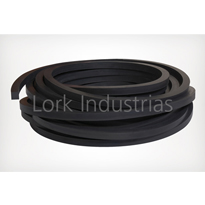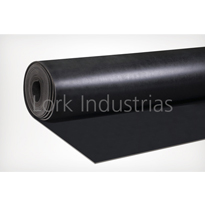
General Information
Neoprene is the trade name given to polymers made up of chloroprene. Neoprene a wide range of uses. Its excellent ageing properties when exposed to ozone and atmospheric agents, in addition to its good resistance to abrasion and bending, have resulted in its being used as an all-purpose rubber. Neoprene is resistant to acids and alkalis, is flame retardant and suitable for use with petroleum-based oils. It is characterised by good resistance to bending, excellent resistance to fatigue and strong resistance to outdoor weather conditions and ozone. Its excellent adherence to metals make it ideal for moulding with metal inserts. Neoprene is not effective in contact with aromatic and oxygenated solvents.
Temperature
-30 + 120 ºC
Density
1,55 gr/cm3
Hardness
70 SH
Properties
- Good resistance to fatigue
- Good resistance to bending and abrasion
- Good resistance to outdoor conditions
- Suitable for use in contact with oils and fats
Applications
- Shock absorbers exposed to ageing processes.
- Piping for the discharge of products that are subject to wear both through abrasion and temperature.
- Expansion joints used in construction.
- Framework exposed to outdoor weather conditions.
- Electrical wire sheathing.
- Sleeves and all types of gaskets in the car industry.
- The lining in tanks used to store certain acids.
- The lining in vats used for pickling, electrolyte baths and wastewater treatment plants.
- Leak-tight seals for floodgates and thermal seals.
- Stops, anti-vibration mounts, rubber-metal buffers and accessories.
Sleeves
We manufacture vulcanised sleeves in any type of rubber (SBR, NBR, EPDM, silicone, Viton, brown natural rubber, etc.) using a hot-vulcanising technique to form a bevel joint, which is more flexible, long-lasting and smoother than other joints.
For further information go to the Download section






